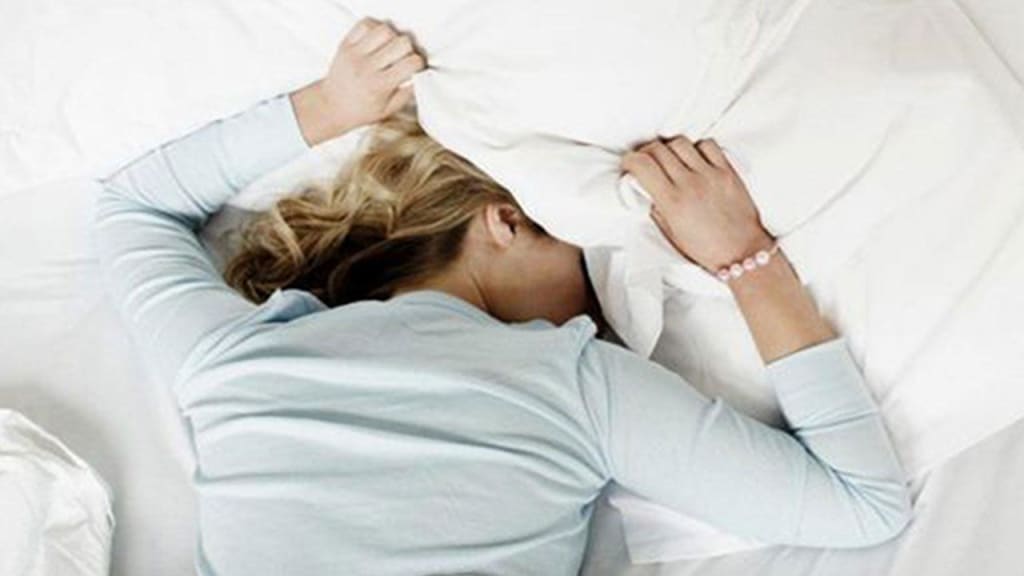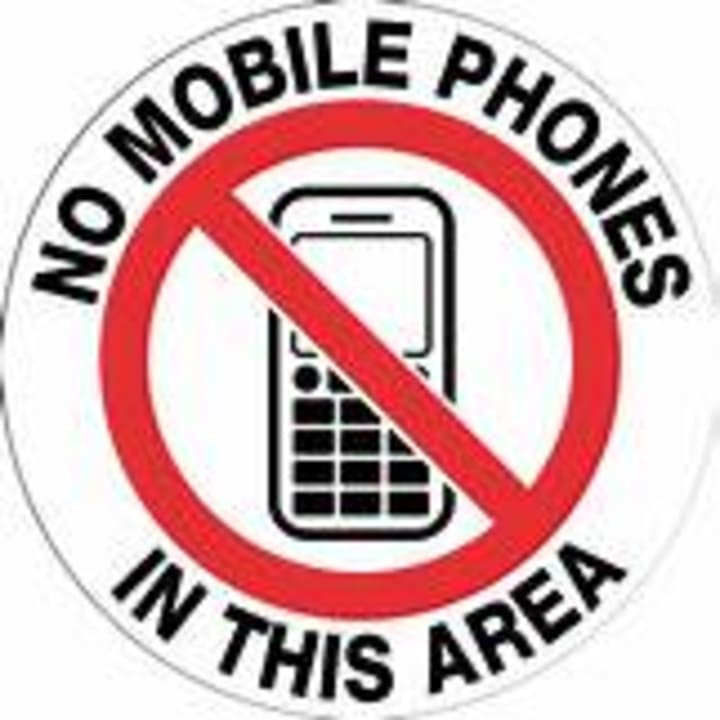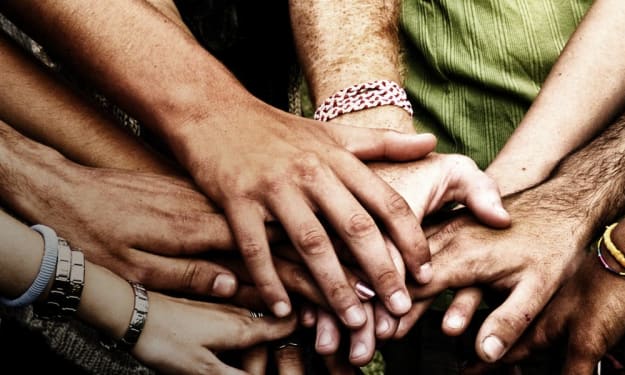Coronasomnia. It's real and trust me, it's out to get you.
We've overcome a whole pandemic, we can easily overcome this task too!

Lack of sleep has always been a common issue for me, of course; it isn’t necessarily an issue for everyone. Well, it wasn’t necessarily an issue for everyone until the pandemic.
Sleeping disorders affect 70 million people in the United States alone. According to Cleveland Clinic, 33% to 50% of the adult population suffers from Insomnia. While chronic insomnia, which is associated with distress or impairment, is estimated to be in around 10% to 15% of adults in the United States.
The National Institutes of Health (NIH) studied longer-term COVID effects, more technically known as post-acute sequelae of SARS-CoV-2 infection (PASC). These conditions affect all ages, not just pregnant women. Long-term effects include difficulty concentrating, sleeping disorders, anxiety, depression, and more.
These long-term effects did not explicitly come from COVID-19 but from the pandemic itself. Lack of sleep has sadly become the norm for this pandemic. The stress and anxiety that came along with this pandemic have brought up lots of new vocabulary. Vocabulary like the difference between endemic and epidemic or SARS and SARS-CoV-2. But the latest term society is using is “coronasomnia.”
Coronasomnia, defined by the Sleep Foundation, is characterized by an increase in sleeping problems during the pandemic and symptoms of anxiety, depression, and stress. Insomnia is already commonly linked to anxiety and depression. Coronasomnia is different because it’s symptoms are only related to the COVID-19 pandemic. Several causes of coronasomnia, which range from loss of a routine to increased hours of social media consumption, are, like I said, unique to living in a pandemic.
Dr. Singh has summarized these stressors into the mnemonic device “FED UP”:
Financial stress
Emotional stress
Distance from others
Unpredictability
Professional concerns
Awful sleeping habits aren't just some insignificant thing that we can expect to blow over. Chronically inadequate sleep does not only damage your immune system but also reduces your memory, increases your risks of depression, and boosts your chances of having any immune severe or heart conditions.
Many studies have shown that developing irregular sleeping schedules were prevalent during the pandemic. Meaning most would go to bed at three or four in the morning and sleep for ten to fifteen hours during the day. By doing this, many people have, most likely unintentionally, messed up their circadian rhythms.
We all need to understand that we are breaking ourselves down from the inside out by throwing off our circadian rhythms. Circadian rhythms are essential not only for sleep cycles but also for metabolism. Circadian rhythms are physical, mental, and behavioral changes in the body that can influence hormone release and other bodily functions. As a result of these challenging times, we stopped exercising and we also stopped focusing on our well-being.
We spent time indoors; many lost jobs; many turned to alcohol and drugs to fix these issues. All of us gained weight, and we were all glued to our devices, damaging our sleeping schedule to the point that we were having difficulty getting back on schedule.
But there's away. There always is away, but many don't know how to go to the light or find their ways to victory. First, we need to start with how we can beat insomnia. Of course, there are such drugs, Melatonin and Ambien, to help deal with insomnia. But I wouldn’t necessarily say those are the most efficient ways to fix the problem.
It is a small solution to a broader problem that cannot be fixed in length with a few pills. It can only be fixed short term, for a few days, or it will get you hooked on these pills that aren't doing anything but making your life worse. A method that I, as someone who has approached a level of chronic insomnia, can get behind is cognitive-behavioral therapy, better known as CBT. Sleep problems are often caused by underlying thoughts, feelings, and behaviors. Cognitive-behavioral therapy addresses these issues.
Cognitive-behavioral therapy approaches to help beat that awful insomnia:

1# Electronics in the other room
How much screen time do you have? Right now, look. How long are you really on your electronic devices? Check all of your electronics screen time. Once you have your numbers add them all together [ex. Three hours + 7 hours + 2 hours] then subtract it by 24 hours. If you get more than 8 hours, you're definitely on the right track to living a healthy lifestyle.
I will be using my iPhone, which I use the most, iPad and MacBook as an example. My daily average for my phone is 10 hours and 27 minutes this week, not counting last Sunday because I like to turn my screen time off, so I look more normal. This time is also not counting this Saturday because it hasn't happened yet. I have been on my phone most in the middle of the week. On Wednesday, I reached a peak of 13 hours and 49 minutes.
My daily average for my iPad is 4 hours and 4 minutes, not containing this Saturday for apparent reasons. I don't turn off my screen time on my iPad because, of course, I don't use it as much as my phone, so it doesn't matter as much to me. On Thursday, my screen time yesterday had peaked at 8 hours and 38 minutes.
My daily average for my MacBook is 7 hours and 59 minutes, not counting Saturday. Once again, I don't turn off my screen time because I don't use it as much as I use my phone. On Thursday, I peaked at 10 hours and 34 minutes.
Now here is where the addition part comes in. If I added all of my daily averages, I would get 22 hours and 30 minutes. Now I would subtract my total from the number of hours in a day. My final total would come out to be less than two hours of no screen time at all.
Another reason why sleep has suffered for most of us in the past year is because of screentime. We would already spend too many hours on social media during the day, but if we stopped checking it for one moment, we would miss something grand. So we, instead of sleeping, we decide to go on Instagram or TikTok for hours and hours. Although we like telling ourselves that we will only be there for another five minutes, we know we are lying to ourselves.
This is what we like to call procrastination. Back in pre-COVID times, we would procrastinate on things like school projects and do them last minute, but now before bed, we procrastinate when we are going to sleep because we are so hooked on other people's lives. We, during COVID, have transformed social media into our lives or like we are living these celebrities' lives through our phones late at night.
I know. You know. We all know. We shouldn't be staring aimlessly at a blue light to catch up on people's lives. Primarily people, we have and will never meet in real life. Blue light is part of the visible light spectrum that we are exposed to by electronics every day. However, nighttime exposure to the light at high levels by smartphones, tablets, laptops, and other LED screens may impair your vision. It also suppresses the production of the hormone melatonin, which hinders your body's natural sleep cues.
So how can we fix this electronic problem? We can fix it by setting a schedule. At a specific time, 9:15 ish, like your last Instagram picture, or watch your last TikTok video and go and put your phone in another room. It can be in the bathroom, downstairs, or right outside the door. Just make sure your electronic device is at least five feet from your bed.
You will realize that your body will start to relax a lot faster, and you will be able just to recall what had happened that day and have some time to yourself as you let your body unwind simply.
#2 Follow the 20 to the 25-minute rule
Apply the quarter of an hour rule if you can't sleep after 20 to 25 minutes. Try getting up, getting out of bed, going to another room, doing something not stimulating for 20 to 25 minutes, and returning to bed. If you still cannot sleep after 20-25 minutes, get up again.
Get up and read a book, not an intense Mafia book or an intense murder mystery. Reading something you know will for sure calm you down. Once you feel as though you are ready to get back into your peaceful slumber, close your book and get prepared to head to bed. Never and I mean NEVER turn on a super bright light when reading at night.
It will unintentionally stimulate you and make you more hyper, while if you were to use a favorable reading light, your eyes would adapt quickly, and when you're ready to go back to sleep, you won't have to get up to turn off the light. You can just quickly turn it off without a hassle at all.
The proper sleep conditions at night aren't as simple as doing one of the activities on this list. There are also things you can avoid as well. Avoid caffeine, blue lights from devices, and watching or listening to anything stimulating. You shouldn't just focus on what you can do before bed, but also on the things you shouldn't do. Once you avoid the right things, look to implement some activities to relax you before bed.
Another thing that is good to do is meditation. It would be best to do meditation that doesn't involve your phone. So the best meditation to do is called mindfulness meditation. Mindfulness can be a form of meditation that, like activity-oriented meditation, doesn’t look like meditation. Mindfulness involves staying in the present moment rather than thinking about the future or the past.
Again, this can be more difficult than it seems. Focusing on emotions and where you feel them in your body is not examining why you feel them, but just experiencing them as sensations and an easier way to just unwind a relax.
The last thing that is an excellent relaxing technique is to do an entry in a bullet journal every night. It can be about anything, but I recommend making it mostly about either things that have been on your mind recently or just do a simple entry about how your day was or what you did during the day.
Take a few minutes before you go to bed to write down the most important things that happened in your day. In addition to helping you to clarify your feelings about the events of your day this will also provide a great reference to help give you an overview of how your life is progressing.
#3 Shut down all of those worries and problems
Constant worrying can take a heavy toll. It can keep you up at night and make you tense and on edge during the day. And even though you hate feeling like a nervous wreck, it can still be so difficult to stop. Chronic worriers' anxious thoughts are driven by beliefs, both positive and negative, that will always persist, resulting in anxiety.
Negative beliefs about worrying:
Usually, people think that constant worrying is harmful. That it makes them crazy or affects their physical health. Or you may worry that you’re going to lose control over your worrying, that it will take over. While negative beliefs add to your anxiety and keeps worry going, positive beliefs about worrying can be just as bad.
Positive beliefs about worry:
Your worrying may seem to help you avoid bad things, prevent problems, prepare you for the worst, or provide solutions. Maybe you tell yourself that if you keep worrying about a problem long enough, you’ll eventually be able to figure it out? You may believe that worrying is a responsible thing to do or that it is the only way to ensure you don't overlook anything? If you believe that your worrying serves a beneficial purpose, it's difficult to break the worry habit. By recognizing that worrying is not the solution, you will be able to regain control of your anxious mind.
Productivity:
Stress and anxiety can interfere with your ability to focus on work, school, or your home life and prevent you from being productive. Postponing worrying can help you in this situation. Give yourself permission to have an anxious thought instead of trying to stop it or get rid of it. However, don't dwell on it.
Choose a set time and place for worrying:
It should be the same every day (ex. in the kitchen or dining room from 3:00 pm to 3:15 p.m.) and early enough that it won’t make you anxious right before bedtime. If you need to worry, you can do so during your worry period. For the rest of the day, however, we are free from worries.
Journaling:
If an anxious thought or worry comes into your head during the day, make a brief note of it and then continue about your day. It's okay not to worry about it right now. You'll have time to think about it later. You're also more likely to lose the power of your worries when you write them down in a journal as opposed to simply thinking them.
Go over the journal during the time you have set for worrying:
As long as you limit your worry period to the amount of time you specified, you can still worry about the thoughts you wrote down. This approach will help you develop a more balanced perspective as you examine your worries. You can simply cut the worry period short if you feel that it is no longer important and enjoy the rest of your day.
Better sleeping habits for the new year:
#1 Get up at the same time every morning
Earlier I had already explained the importance of your circadian rhythms. If we wake up at the same time every day, we can reinforce the circadian rhythm and be prompted to go to sleep at the same time every night. The outcome is that our bodily functions and cycles operate efficiently, keeping our system strong and energized.
You will see a lot of benefits if you wake up and go to bed at the same time every morning and night. As a result, you will notice a dramatic improvement in not only your concentration but also your productivity. You won't notice changes within the first day or so. But trust me the effects of this new cycle will also benefit your emotional stability and your immune system.
#2 Follow the 2 pm rule
Caffeine has a half-life of six to eight hours and a quarter-life of about 12 hours. That means that if you drink coffee at 4 p.m., “you’ll still have a quarter of the caffeine floating around in your brain at 4 a.m.,” said Dr. Breus. In the evening, it is best to avoid caffeine. In general, you should limit your caffeine consumption after 2 p.m. To allow your body time to metabolize and eliminate the majority of caffeine.
Caffeine is associated with several health conditions. People have different tolerances and responses to caffeine, partly due to genetic differences. Caffeine consumption regularly, such as one cup of coffee every day, may make some people more tolerant to its side effects, allowing them to experience fewer side effects over time.
#3 Exercises for better sleep
The pandemic led people to cut back on physical activity. But exercise is the easiest way to improve sleep. Numerous studies have found that people who regularly exercise, regardless of type or intensity, are able to fall asleep quicker and stay asleep longer, especially when they are middle-aged or older.
According to the Sleep Foundation, people with chronic insomnia can fall asleep about 13 minutes faster and gain up to 20 extra minutes of sleep per night by starting an exercise routine. One rule though, end your exercise at least four hours before bedtime, otherwise it could interfere with your sleep by raising your body temperature.
Exercise also helps with a load of other things. YOU BURN CALORIES! When your body breaks down energy-dense foods, like carbohydrates and lipids, it turns them into the molecule ATP (adenosine triphosphate). Then, when the body converts ATP into ADP (adenosine diphosphate), it gives off energy and allows muscles to move. This process is where the term “I’m burning off calories” or just “burning off calories” comes from.
YOU HEAT UP! As your body burns calories, its temperature starts to rises, and you sweat. Sweat is your bodys way of trying to cool down from exercising because if we didnt sweat our bodys would completely overheat.
DIGESTION CAN GET A TAD BIT FUNNY! Feeling like you suddenly had to go to the bathroom after starting to run? Blood flow is directed away from your core and intestines to your large working muscles, which can lead to diarrhea. Another rule, dont eat an hour before you start to excersise.
#4 Make your bed a safe space
It's recommended that you wash your bedding in hot water once a week. To ensure your bedding is completely free of mites, it should be dried on hot. Even if you don't feel comfortable in your bed, there are a few simple changes you can make to feel fresh and ready to start the day each morning.
I recommend getting a Lull Mattress. I am not just saying this. Like I actually mean it. I have been looking at the quality of all their mattresses on their website and they have an extraordinary prices for the absolute greatness of the mattresses.
You can not only stay nice and cozy with the Lull mattress, but you feel 1000% more comfortable with these mattress compared to the traditional memory foam. So your bed will be an even safer place with Lull. You won't have to worry about blankets or pillows because you can buy those too with Lull's amazing prices.
#5 Save challenging activities for another time
Your bedtime should be a time of relaxation and unwinding. Save activities that can be challenging or stressful for an earlier part of your day. The National Sleep Foundation says people should stay away from stressful activities such as paying bills, reading the evening news or looking at social media conflicts before going to bed.
~~~~
I recommend following these steps for a few nights before seeing any drastic changes. Studies have shown that less than 25% of people actually stay committed to their resolutions after just 30 days, and only 8% accomplish them. But normally people make unrealistic expectations for themselves to achieve over the new year. These resolutions are very realistic and everyone can relate to them.
The CDC also recommends people keep a routine when they go to bed and wake up. This means going to bed at the same time each night and waking up at the same time each morning, even on the weekends. If you continue to struggle to get enough quality sleep, you should talk to your doctor.
They may have additional recommendations to improve your sleep and cope with feelings of stress and anxiety. COVID-19 affects everyone's life, so it's important to remember you are not alone and should seek the help you need to live a happy and healthy life.
About the Creator
Ceo Of Dying
Join my Roblox group: https://www.roblox.com/groups/3771416/Dance-Battle-Group#!/store
Subscribe to my YouTube: Ceo Of Dying
Discord Server:
Twitter: Briarisdaddy
Discord: Briar is daddy#1761
Instagram: briarlynnx
Roblox: WsgBriar







Comments
There are no comments for this story
Be the first to respond and start the conversation.